-
 bitcoin
bitcoin $87959.907984 USD
1.34% -
 ethereum
ethereum $2920.497338 USD
3.04% -
 tether
tether $0.999775 USD
0.00% -
 xrp
xrp $2.237324 USD
8.12% -
 bnb
bnb $860.243768 USD
0.90% -
 solana
solana $138.089498 USD
5.43% -
 usd-coin
usd-coin $0.999807 USD
0.01% -
 tron
tron $0.272801 USD
-1.53% -
 dogecoin
dogecoin $0.150904 USD
2.96% -
 cardano
cardano $0.421635 USD
1.97% -
 hyperliquid
hyperliquid $32.152445 USD
2.23% -
 bitcoin-cash
bitcoin-cash $533.301069 USD
-1.94% -
 chainlink
chainlink $12.953417 USD
2.68% -
 unus-sed-leo
unus-sed-leo $9.535951 USD
0.73% -
 zcash
zcash $521.483386 USD
-2.87%
Does +DI crossing -DI in DMI mean that the bulls are dominant?
When +DI crosses above -DI and ADX rises, it signals a strengthening bullish trend in crypto markets.
Jun 21, 2025 at 03:01 pm
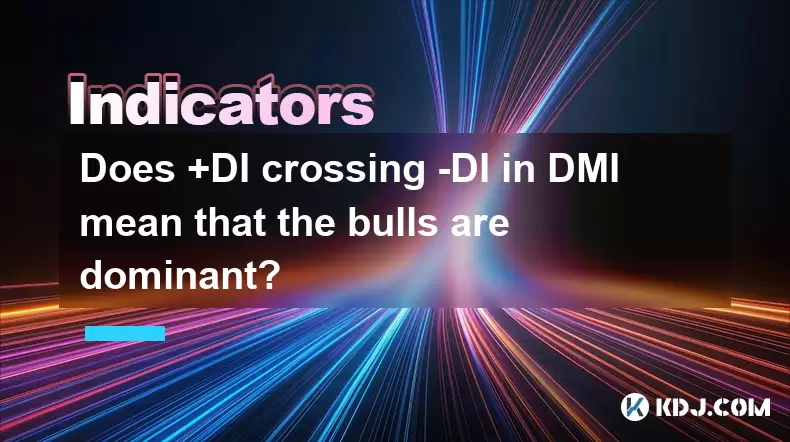
Understanding the DMI Indicator
The Directional Movement Index (DMI) is a technical analysis tool developed by J. Welles Wilder to assess the strength and direction of a trend in cryptocurrency markets. The DMI consists of two primary lines: +DI (Positive Directional Indicator) and -DI (Negative Directional Indicator). These lines help traders determine whether buyers or sellers are in control of price action.
In the context of cryptocurrencies, where volatility is high and trends can reverse quickly, understanding how the DMI works becomes crucial for traders. +DI measures upward movement, while -DI captures downward momentum. When analyzing these two lines, their relationship to each other provides insight into market sentiment.
What Happens When +DI Crosses Above -DI?
A common interpretation among traders is that when +DI crosses above -DI, it signals a potential bullish trend. This crossover suggests that positive directional movement is overpowering negative movement, indicating that bulls may be gaining control.
However, this signal should not be interpreted in isolation. It's essential to consider other components of the DMI, such as the ADX line, which measures the strength of the trend regardless of its direction. If the ADX line is rising alongside the +DI crossing above -DI, it confirms that the uptrend is strengthening and that bulls are indeed dominant.
Conversely, if the ADX line is declining or flat during the crossover, the move might be weak or short-lived. Therefore, traders must evaluate the broader DMI picture before concluding that bulls have taken over.
How to Interpret DMI Signals in Cryptocurrency Trading
Cryptocurrency markets are known for sharp reversals and sudden surges, making accurate signal interpretation critical. Here’s how to interpret the +DI/-DI crossover effectively:
- Monitor the ADX Line: A reading above 25 typically indicates a strong trend. If ADX is rising along with the +DI crossing above -DI, it reinforces the bullish case.
- Look at Timeframes: Short-term crossovers may not carry the same weight as those observed on higher timeframes like 4-hour or daily charts.
- Combine with Other Indicators: Use volume indicators, moving averages, or RSI to confirm the strength behind the DMI signal.
- Avoid False Signals: In ranging markets, DMI crossovers can produce false signals. Always check the overall market structure before acting on any DMI-based trade idea.
By following these steps, traders can avoid premature entries and ensure they're aligning with actual bullish dominance rather than temporary price spikes.
Practical Example Using DMI in Crypto Charts
Let’s take a practical example using a hypothetical scenario on a Bitcoin chart:
Imagine you’re monitoring BTC/USDT on a 4-hour chart. You notice that the +DI line has just crossed above the -DI line, suggesting a potential bullish shift. At the same time, the ADX line is climbing from below 20 to above 30, confirming that the trend is gaining strength.
You decide to wait for further confirmation:
- Price closes above a recent resistance level
- Volume increases on the candle following the crossover
- RSI moves out of oversold territory
Only after these conditions are met do you enter a long position, confident that bulls are indeed dominating the market at that moment.
This kind of step-by-step validation ensures that the DMI signal isn’t misinterpreted due to noise or sideways movement.
Common Pitfalls When Using DMI in Crypto Trading
While DMI can be a powerful tool, many traders fall into traps that lead to incorrect interpretations:
- Ignoring ADX Readings: Many traders focus only on +DI and -DI crossovers without checking whether the trend has enough strength. A crossover without a rising ADX could mean a weak or false trend.
- Using DMI in Isolation: Like all indicators, DMI performs best when combined with others. Relying solely on DMI can lead to misleading conclusions.
- Reacting Too Quickly: Jumping into trades immediately after a crossover often leads to losses, especially in choppy or consolidating markets. Waiting for additional confirmation helps filter out false bullish signals.
- Misinterpreting Market Conditions: DMI is designed for trending markets. Applying it in a sideways market can result in frequent whipsaws and confusion.
Avoiding these pitfalls requires discipline and a structured approach to interpreting DMI signals within the broader context of crypto price behavior.
Frequently Asked Questions (FAQ)
Q1: Can I use DMI for short-term trading in cryptocurrencies?Yes, DMI can be applied to shorter timeframes, but it's more effective when used in conjunction with other tools like volume indicators or support/resistance levels. Short-term traders must pay close attention to ADX values to avoid acting on weak or misleading signals.
Q2: Does a +DI crossing above -DI always indicate a buy signal?No, a +DI crossing above -DI alone does not guarantee a valid buy opportunity. Traders must also verify that the ADX line is rising and that other technical factors align with the bullish case before entering a trade.
Q3: What should I do if +DI crosses above -DI but the price continues to fall?This divergence suggests that bullish momentum may not be strong enough to drive price higher. In such cases, it's better to wait for stronger confirmation or look for other signals before assuming bulls are in control.
Q4: How reliable is the DMI indicator compared to MACD or RSI in crypto trading?Each indicator serves a different purpose. While DMI excels at identifying trend strength and direction, RSI and MACD offer insights into momentum and overbought/oversold conditions. Combining them gives a more comprehensive view of the market than relying on any single indicator.
Disclaimer:info@kdj.com
The information provided is not trading advice. kdj.com does not assume any responsibility for any investments made based on the information provided in this article. Cryptocurrencies are highly volatile and it is highly recommended that you invest with caution after thorough research!
If you believe that the content used on this website infringes your copyright, please contact us immediately (info@kdj.com) and we will delete it promptly.
- UAE Investor Secures Major Stake in Trump-Linked Crypto Firm Amidst Shifting Geopolitical Tides
- 2026-02-02 07:10:01
- Pepe Meme Coin: Navigating the Hype, Price Predictions, and Future Outlook in 2026 and Beyond
- 2026-02-02 07:05:01
- Blockchain Gaming's Quiet Revolution: Unpacking Latest Trends and Industry Insights Amidst Market Shifts
- 2026-02-02 06:30:01
- IPO Genie, Tokenization, and YouTubers: The Big Apple's Next Big Bet on Democratized Wealth
- 2026-02-02 06:40:02
- Aptos in a Bind: Downtrend Deepens, But a Brief Relief Bounce Looms Before the Next Plunge
- 2026-02-02 07:00:01
- Pi Network, ATL, and Community: Navigating the Currents of a Mobile-First Crypto Movement
- 2026-02-02 07:00:01
Related knowledge
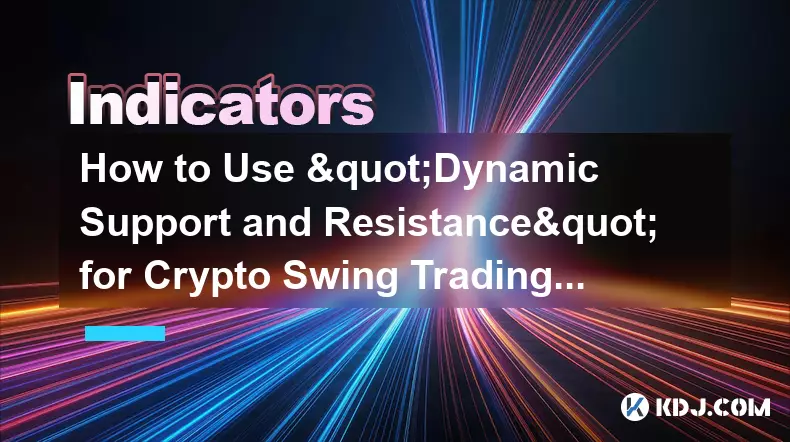
How to Use "Dynamic Support and Resistance" for Crypto Swing Trading? (EMA)
Feb 01,2026 at 12:20am
Understanding Dynamic Support and Resistance in Crypto Markets1. Dynamic support and resistance levels shift over time based on price action and movin...
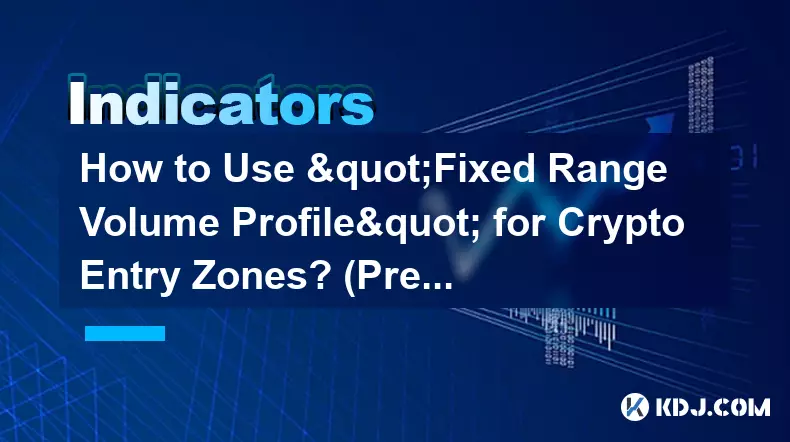
How to Use "Fixed Range Volume Profile" for Crypto Entry Zones? (Precision)
Feb 01,2026 at 10:19pm
Understanding Fixed Range Volume Profile Mechanics1. Fixed Range Volume Profile (FRVP) maps traded volume at specific price levels within a defined ti...
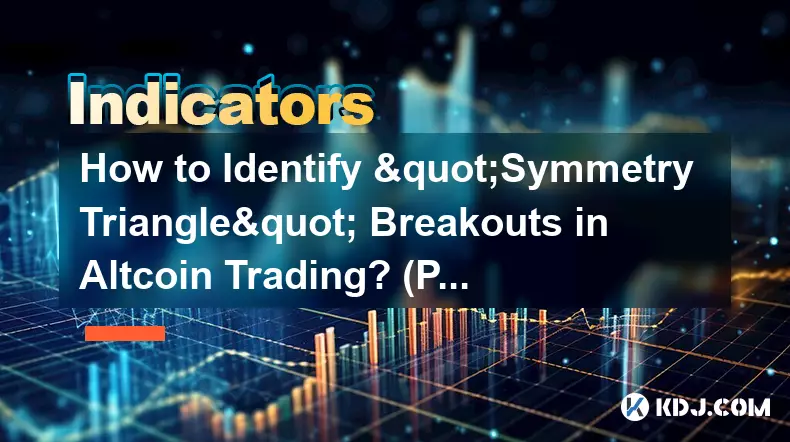
How to Identify "Symmetry Triangle" Breakouts in Altcoin Trading? (Patterns)
Feb 01,2026 at 01:39pm
Symmetry Triangle Formation Mechanics1. A symmetry triangle emerges when price action consolidates between two converging trendlines—one descending an...
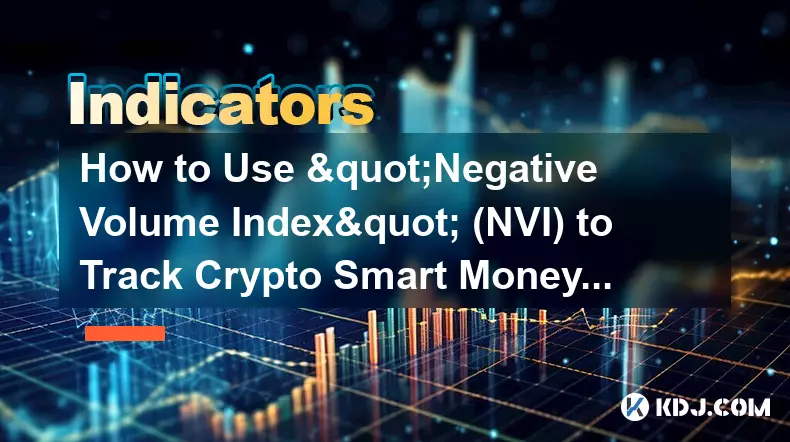
How to Use "Negative Volume Index" (NVI) to Track Crypto Smart Money? (Pro)
Feb 01,2026 at 02:40am
Understanding NVI Mechanics in Crypto Markets1. NVI calculates cumulative price change only on days when trading volume decreases compared to the prio...

How to Spot "Absorption" in Crypto Order Books? (Scalping Technique)
Feb 01,2026 at 08:39pm
Understanding Absorption Mechanics1. Absorption occurs when large buy or sell orders repeatedly appear and vanish at the same price level without trig...
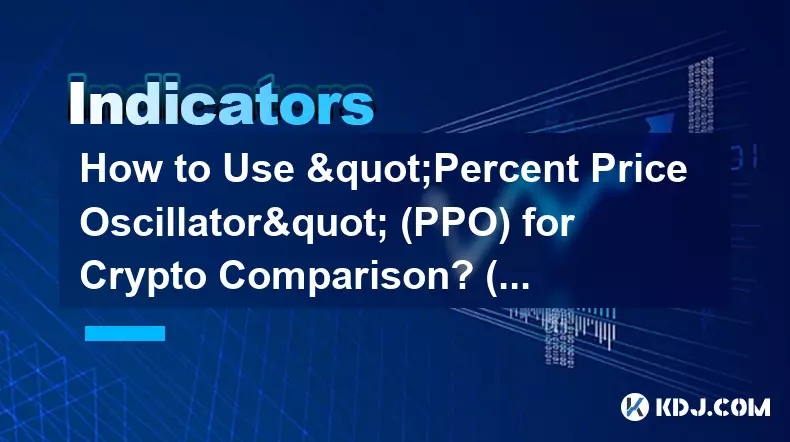
How to Use "Percent Price Oscillator" (PPO) for Crypto Comparison? (Strategy)
Feb 01,2026 at 01:59am
Understanding PPO Mechanics in Volatile Crypto Markets1. The Percent Price Oscillator calculates the difference between two exponential moving average...

How to Use "Dynamic Support and Resistance" for Crypto Swing Trading? (EMA)
Feb 01,2026 at 12:20am
Understanding Dynamic Support and Resistance in Crypto Markets1. Dynamic support and resistance levels shift over time based on price action and movin...

How to Use "Fixed Range Volume Profile" for Crypto Entry Zones? (Precision)
Feb 01,2026 at 10:19pm
Understanding Fixed Range Volume Profile Mechanics1. Fixed Range Volume Profile (FRVP) maps traded volume at specific price levels within a defined ti...

How to Identify "Symmetry Triangle" Breakouts in Altcoin Trading? (Patterns)
Feb 01,2026 at 01:39pm
Symmetry Triangle Formation Mechanics1. A symmetry triangle emerges when price action consolidates between two converging trendlines—one descending an...

How to Use "Negative Volume Index" (NVI) to Track Crypto Smart Money? (Pro)
Feb 01,2026 at 02:40am
Understanding NVI Mechanics in Crypto Markets1. NVI calculates cumulative price change only on days when trading volume decreases compared to the prio...

How to Spot "Absorption" in Crypto Order Books? (Scalping Technique)
Feb 01,2026 at 08:39pm
Understanding Absorption Mechanics1. Absorption occurs when large buy or sell orders repeatedly appear and vanish at the same price level without trig...

How to Use "Percent Price Oscillator" (PPO) for Crypto Comparison? (Strategy)
Feb 01,2026 at 01:59am
Understanding PPO Mechanics in Volatile Crypto Markets1. The Percent Price Oscillator calculates the difference between two exponential moving average...
See all articles










































































